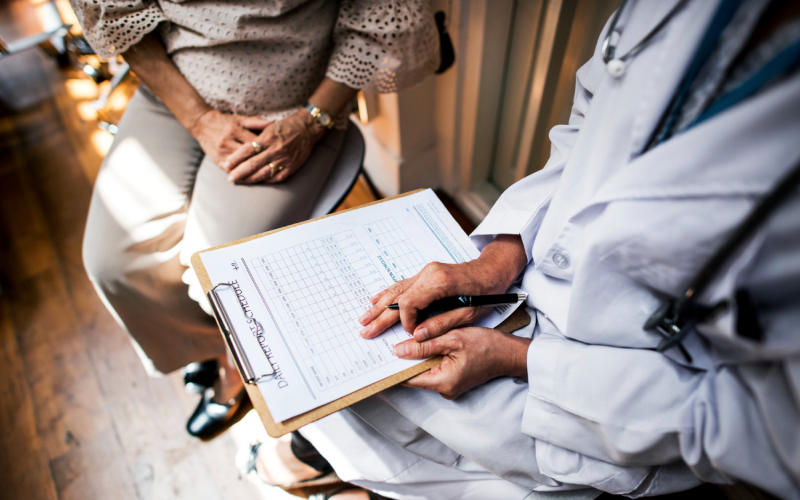Two top home health companies, VNS Health and Bayada Home Health Care, have set their organizations apart by investing in research.
Research divisions are still uncommon across the home-based care industry. However, organizations that have research capabilities in place have been able to improve patient outcomes, cultivate data that proves valuable in payer negotiations and stay on the cutting edge of care delivery.
“There’s value to a home health agency if you can make the commitment to fund [a research leader role] long enough for the person in the role to demonstrate that they can help you get a return on investment by helping prove that a new model of care will demonstrate better outcomes,” Mike Johnson chief researcher of home care innovation at Bayada, told Home Health Care News. “Then you go to the payers and ask for different rates.”
Bayada provides home health, home care, hospice and behavioral health care services in 22 states. It also has international locations, operating in Germany, India, Ireland, New Zealand and South Korea. Overall, Bayada has about 33,000 employees nationwide. The company cares for an average of 46,000 clients on a weekly basis.
On its end, VNS Health has its own Center for Home Care Policy & Research. The research arm of the company has been around for 33 years, has amassed over $60 million in external funding, and has published over 500 articles in peer-reviewed journals.
New York-based VNS Health is a full-service home-based care organization. On any given day, the company has over 73,000 patients, members and clients in its care.
In her role as director of the VNS Health Center for Home Care Policy & Research, Kathy Bowles sets the strategic direction of the department, keeping in mind the priorities of the National Institute of Health and the home- and community-based industry, and works to raise research funds.
In addition to her role at VNS Health, Bowles also serves as professor and van Ameringen Chair in nursing excellence at Penn Nursing.
In 2024, the center’s research led to the CDC adding a new diagnostic code to their annual update of the International Classification of Diseases (ICD-10) list. Bowles’ team reviewed the records of nearly 170,000 sepsis survivors who entered home care nationwide and found that sepsis was noted in admission assessments only 7% of the time.
“We see this direct correlation between the work and research we did to this improved diagnosis code, which has the single goal of improvement in the quality of care,” VNS Health CEO and President Dan Savitt previously told HHCN. “We’re really looking forward to seeing how this improves care over time.”
Now that this diagnostic code exists, as a product of VNS Health’s research, the company can accurately label and track these sepsis survivors. It also allows the company to track the resources needed to care for sepsis survivors.
“It’s really important for many reasons,” Bowles told HHCN. “We can label the patient correctly, and then that can trigger sepsis-focused care plans, timely attention and the close monitoring that they need. It helped us improve our time for start-of-care for sepsis survivors at our agency. I’m speaking across the country about this all the time, and hoping that we’re spreading the word across the industry.”
According to Bowles, VNS’ research center is important because it allows a home health company to be part of the Learning Health System, a system that aggregates and analyzes data from health care encounters within multiple organizations.
“The Learning Health System is when organizations use their data, information and knowledge that they generate in their practices to improve operations and outcomes,” Bowles said. “It would mean partnering with acute care to work on improving, [for example] transitions in care. Another example would be sharing data across home health agencies, so we can learn from each other as to how people are achieving outcomes in certain care lines or with certain diagnoses. Then you can bring that back to your own organization and work on improving your processes.”
Creating better outcomes for patients
Along with VNS Health, Bayada joined the small club of home health providers that have a research-focused division when it named Johnson chief researcher of home care innovation last year.
“I’m responsible for partnering with each of our practices to help add a level of additional level of thoughtfulness and rigor to projects that we’re working on, which will eventually, in the short run and long run, improve the outcomes for the patients that we serve,” he said. “Fundamentally, my role is to just help accelerate better care, plain and simple.”
Prior to his appointment, Johnson served as president of Bayada’s home health division for almost a decade.
To accelerate Bayada’s research capabilities, the company has focused on forming partnerships with academic institutions. The company is currently in discussions with at least 20 universities, as part of the process of building out its network.
Plus, the company is working with researchers from Children’s Hospital of Philadelphia, Boston Children’s Hospital and Lurie Children’s Hospital of Chicago to do research on hospital-to-home transitions of care processes for medically fragile children. As one of the largest home-based pediatric providers in the country, the findings will aid the company’s goals to improve care for this population.
Bayada was also recently awarded a Learning Health System scholar, who will partner with the company, help with research methodology and accelerate Bayada’s research.
Johnson believes that the biggest value in having a research arm at Bayada is the ability to focus solely on proving which models of care produce the best outcomes.
Johnson noted that this is especially crucial for providers operating under the Home Health Value-Based Purchasing (HHVBP) model.
Bayada and VNS Health are currently working on a number of projects. Bayada is studying various models of care, including how payment structures impact care delivery. The company is also focused on collecting data to predict hospitalization risks.
Meanwhile, VNS Health is developing risk models and early warning systems to support clinicians during the home health episode. The company is also working to detect undiagnosed dementia by utilizing AI to analyze voice recordings.
Ultimately, Johnson believes home health leaders are already well-positioned to embrace research as a key component at their organizations.
“For folks who are running home health agencies, you’re actually already thinking like a scientist, and research is just a level of discipline, determination and curiosity,” he said.
The post How Bayada, VNS Health Are Using Research To Accelerate Their Business appeared first on Home Health Care News.






